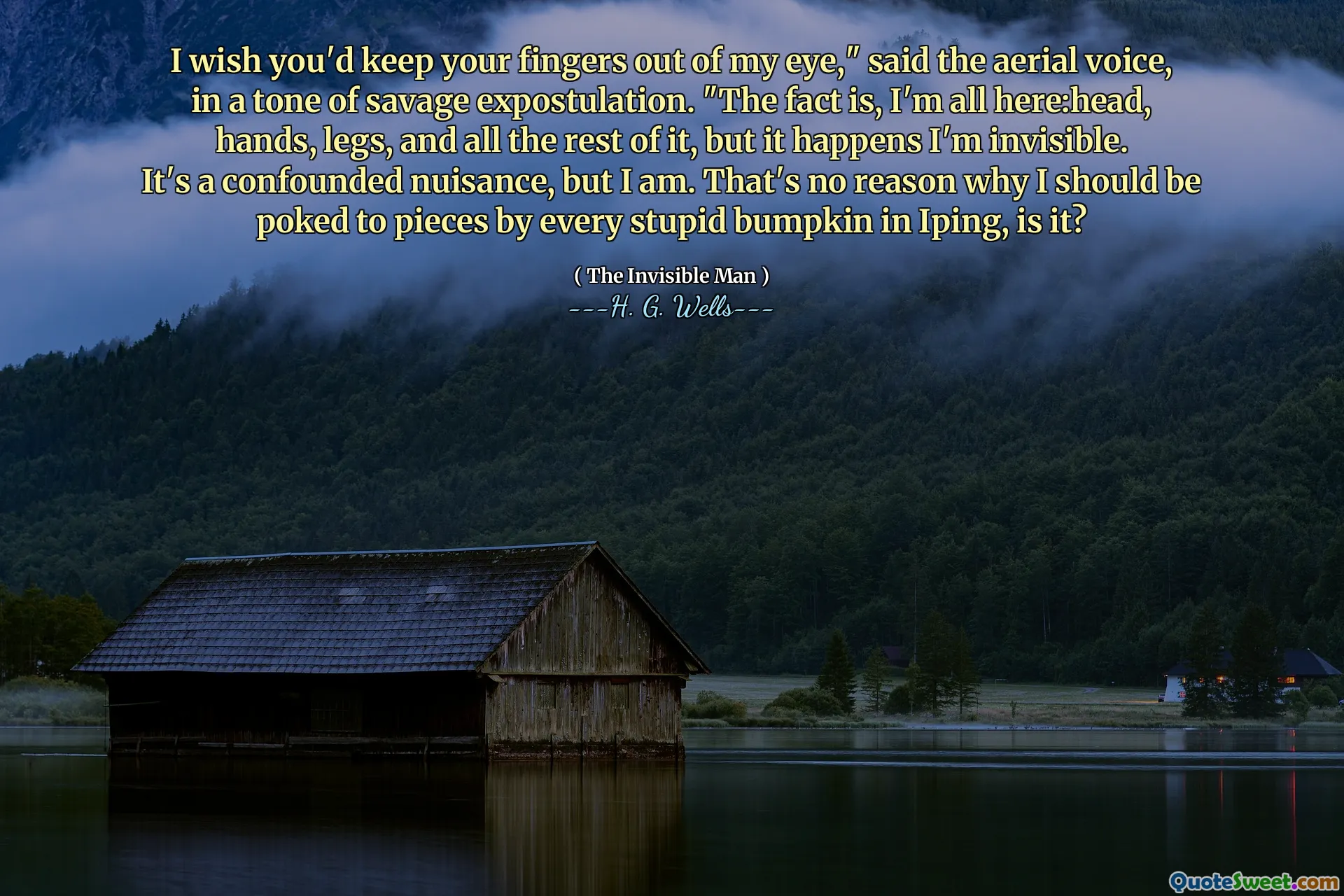
I wish you'd keep your fingers out of my eye," said the aerial voice, in a tone of savage expostulation. "The fact is, I'm all here:head, hands, legs, and all the rest of it, but it happens I'm invisible. It's a confounded nuisance, but I am. That's no reason why I should be poked to pieces by every stupid bumpkin in Iping, is it?
In H.G. Wells' "The Invisible Man," a character expresses frustration at being invisible, highlighting the challenges and irritations that come with this condition. The character asserts their physical presence, emphasizing that invisibility does not reduce their existence or entitle others to invade their personal space. This leads to a conflict with the people of Iping, who, unaware of his true nature, inadvertently cause distress with their actions.
This quote underscores the theme of isolation and the struggles faced by those who are different. The protagonist's exasperation reflects a desire for recognition and respect, despite their invisible status. As the narrative unfolds, the implications of invisibility extend beyond physical attributes, exploring deeper societal issues and personal identity.











